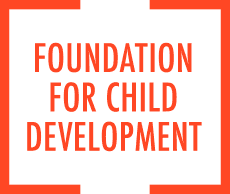https://www.fcd-us.org/enriching-children-enriching-the-nation/
In many states, one of the major barriers to implementing PK-3 is funding Prekindergarten. Enriching Children, Enriching the Nation, by economist Robert G. Lynch, addresses this issue. Lynch shows that investments in high-quality Prekindergarten - whether a universal program or one targeted to low-income children - pay off dramatically for state government. Previous cost-benefit studies of Prekindergarten include the benefits to individuals such as higher earnings and benefits to society such as less crime. Those concerned with balancing state budgets also have a more practical question. When do state governments start to get returns on their investment in Prekindergarten? Enriching Children, Enriching the Nation answers this question. Lynch shows that 80 percent of states would see surpluses from expenditures for targeted PK programs in 10 years or less. For a universal program, budget benefits alone would exceed program costs within 25 years for 49 states.
Enriching Children, Enriching the Nation, by economist Robert G. Lynch, shows that PK-3 investments pay off dramatically for government budgets as well as for children and society. Based on data from the Chicago Child-Parent Centers, a comprehensive PK-3 program that also provides family support services to economically disadvantaged children, Lynch analyzes the budgetary impact for each state as well as the nation as a whole.
Comparing government budget benefits alone to costs (and leaving aside the benefits to individuals of less crime and higher earnings), Lynch shows that a targeted program would pay for itself within nine years and a universal program, within 17 years.
Individual state government budgets would reach the break-even point even sooner - in just four years for a targeted program in the case of Connecticut, Delaware, and Vermont, and in just 10 years for Kentucky and New York in the case of a universal program.
When other states would reach this point depends primarily on whether and how much they already invest in Prekindergarten and other educational, criminal justice, and child welfare programs, as well as on their tax systems. Nevertheless, if PK programs targeted to the most at-risk children were fully implemented this year, state government budget gains would surpass costs in over 80 percent of the states in 10 years or less, and all but two would reach surplus by 2020. For those two, the break-even point would come in 2024 (Indiana) and 2025 (Alabama). For a universal program, budget benefits alone would exceed program costs within 25 years in every state except Alabama, which would break even in the 29th year, 2036.
